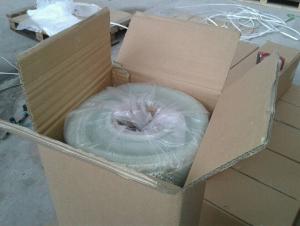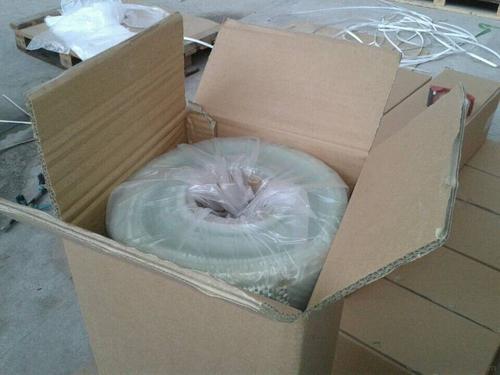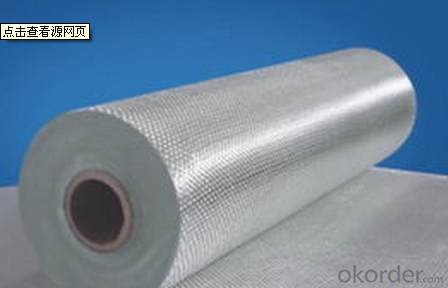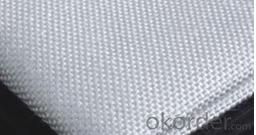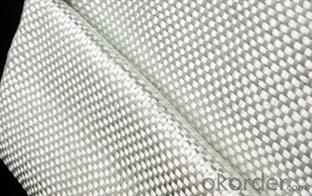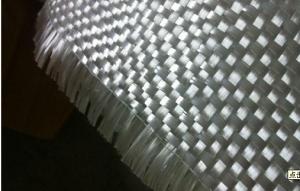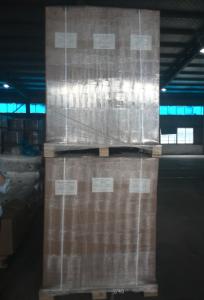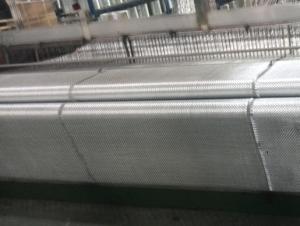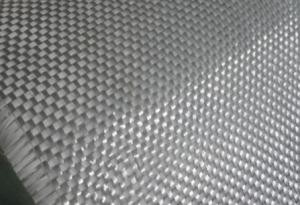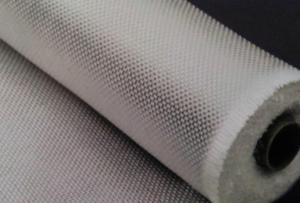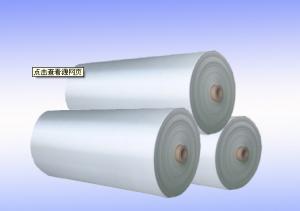Fiberglass Mat Tissue - E-Glass Fiberglass Woven Roving, 400g, 1200mm
- Loading Port:
- Shanghai
- Payment Terms:
- TT or LC
- Min Order Qty:
- 16000 kg
- Supply Capability:
- 160000 kg/month
OKorder Service Pledge
OKorder Financial Service
You Might Also Like
1.Brief Introduction
Glass woven rovings are bidirectional fabric by direct rovings in plain weave pattern. They are applicable for hand lay-up, winding and compress molding process, suitable for manufacturing tank, boat, automobile parts and other FRP products.
2.Main Features of the woven roving
1)Drapes well to suit the surface of intricate moulds
2)Fast wet-through and wet out
3)Easy handing and better appearance of the composite parts
3. Images
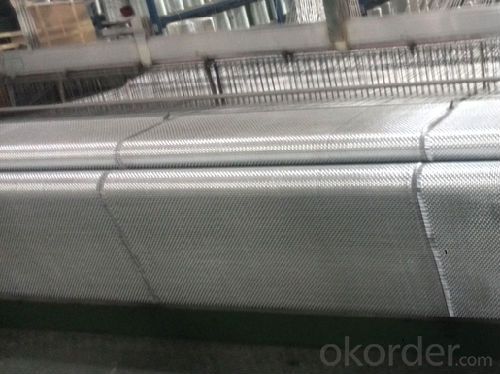
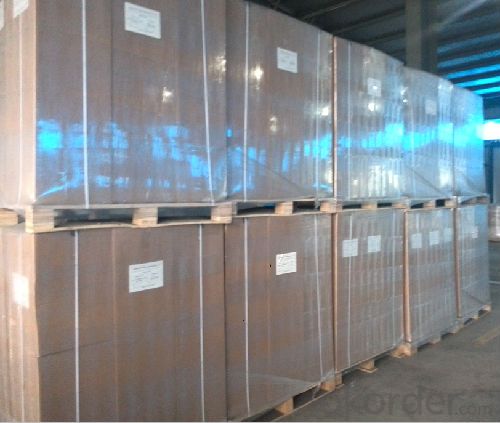
4.Woven roving Specification
Normal type | EWR800-1000 | Test Standard |
Apperance | Good | GB/T 18370-2001 |
Density(warpxweft)(end/cm) | 1.8 X 1.5 | GB/T 7689.2-2001 |
Tex (warpxweft) | 2400x2400 | ISO1889 |
Moisture content(%) | ≤0.10 | ISO3344 |
Loss on ignition(%) | 0.40-0.80 | ISO1887 |
Glass | E-glass | N/A |
5.FAQ of woven roving
Packaging:
Each woven roving is wound onto a paper tube which has an inside diameter of 76mm and the mat roll has a diameter of 220mm. The woven roving roll is wrapped up with plastic film,and then packed in a cardboard box or wrapped up with kraft paper. The rolls can be horizontally placed. For transportation, the rolls can be loaded into a cantainer directly or on pallets.
Storage:
Unless otherwise specified,It should be stored in a dry, cool and rain-proof area. It is recommended that the room temperature and humidity should be always maintained at 15℃~35℃ and 35%~65% respectively.
- Q: Is fiberglass mat tissue safe to handle?
- Yes, fiberglass mat tissue is generally safe to handle. However, it is important to take certain precautions when handling fiberglass to minimize any potential risks. Fiberglass mat tissue is made up of fine fibers of glass, and if not handled properly, these fibers can become airborne and may cause irritation to the skin, eyes, and respiratory system. To ensure safety, it is recommended to wear personal protective equipment such as gloves, safety goggles, and a dust mask when handling fiberglass mat tissue. This will help prevent direct contact with the skin, eyes, and inhalation of any loose fibers. It is also advisable to work in a well-ventilated area to reduce the concentration of airborne fibers. In addition, it is essential to handle fiberglass mat tissue with care to prevent any physical injuries. The fibers can be sharp and may cause cuts or abrasions if mishandled. It is advisable to use appropriate tools and techniques to cut, shape, or manipulate the material. Furthermore, it is important to follow proper disposal guidelines for fiberglass waste. Avoid sweeping or vacuuming the area where fiberglass mat tissue has been handled, as this can disperse fibers into the air. Instead, use damp cleaning methods or specialized vacuum cleaners with HEPA filters to contain the fibers and reduce the risk of exposure. By following these safety precautions and handling guidelines, the risks associated with fiberglass mat tissue can be effectively minimized, ensuring safe handling and use of the material.
- Q: How does fiberglass mat tissue perform in high temperatures?
- Fiberglass mat tissue performs well in high temperatures as it has a high melting point and excellent heat resistance. It retains its strength and structural integrity even when exposed to elevated temperatures, making it suitable for various applications in high-temperature environments.
- Q: Is fiberglass mat tissue resistant to moisture?
- Yes, fiberglass mat tissue is resistant to moisture. Fiberglass mat tissue is made from tightly woven strands of glass fibers, which are then bonded together with a resin. This resin creates a barrier that prevents moisture from penetrating the tissue. As a result, fiberglass mat tissue is highly resistant to moisture and can be used in applications where exposure to water or high humidity is expected. Additionally, the moisture resistance of fiberglass mat tissue helps prevent the growth of mold or mildew, making it a suitable choice for damp environments.
- Q: Is fiberglass mat tissue suitable for high-temperature applications?
- High-temperature applications are not suitable for fiberglass mat tissue. This type of tissue is usually composed of thin glass fibers interwoven to form a non-woven fabric. Although fiberglass is renowned for its robustness and endurance, it possesses a low melting point, rendering it unsuitable for withstanding high temperatures. Exposing fiberglass mat tissue to elevated temperatures may result in its melting or deterioration, leading to weakened structure and possible malfunction. Consequently, it is crucial to opt for alternative materials explicitly designed for high-temperature applications, such as ceramic or silicone-based products.
- Q: What is the flexibility of fiberglass mat tissue at low temperatures?
- The flexibility of fiberglass mat tissue at low temperatures is generally maintained, as fiberglass has low thermal expansion and contraction properties, allowing it to retain its flexibility even in cold conditions.
- Q: Is fiberglass mat tissue suitable for insulation in laboratories?
- Yes, fiberglass mat tissue is suitable for insulation in laboratories. It offers excellent thermal insulation properties, is resistant to high temperatures, and provides effective sound insulation. Additionally, it is non-combustible and chemically inert, making it ideal for laboratory environments where safety and performance are crucial.
- Q: How does fiberglass mat tissue enhance the strength of composite materials?
- Fiberglass mat tissue plays a crucial role in enhancing the strength of composite materials. It is a woven fabric made of thin fiberglass strands, which are randomly oriented and bonded together with a resin binder. This unique structure allows the fiberglass mat tissue to provide several key benefits to composite materials. Firstly, the random orientation of the fiberglass strands in the mat tissue helps distribute the stress and load more evenly across the composite material. This means that when a force is applied to the composite, the mat tissue prevents localized stress concentrations, which can lead to cracks or failure. By distributing the stress, the fiberglass mat tissue enhances the overall strength and durability of the composite material. Secondly, the resin binder used in the fiberglass mat tissue acts as a reinforcement and bonding agent. When the composite material is manufactured, the resin binder in the mat tissue infiltrates the fibers, creating a strong and cohesive structure. This not only improves the overall strength of the composite material but also enhances its resistance to impact and fatigue. Furthermore, the presence of the fiberglass strands in the mat tissue increases the stiffness of the composite material. The strands, when combined with the resin binder, create a rigid framework that adds structural integrity to the composite. This increased stiffness makes the material more resistant to deformation and improves its load-bearing capabilities. In addition to strength enhancement, fiberglass mat tissue also provides thermal and electrical insulation properties to composite materials. The fiberglass strands act as a barrier, reducing heat transfer and preventing electrical conductivity. This makes the composite material suitable for applications where insulation is required, such as in electrical enclosures or thermal insulation panels. Overall, fiberglass mat tissue plays a vital role in enhancing the strength of composite materials by distributing stress, reinforcing the structure, increasing stiffness, and providing additional insulation properties. Its random orientation, resin binder, and unique characteristics make it an indispensable component in the production of high-performance composites used in various industries, including aerospace, automotive, construction, and marine.
- Q: Can fiberglass mat tissue be used for insulation?
- Yes, fiberglass mat tissue can be used for insulation. It is commonly used in the construction industry as a thermal and sound insulation material. The fiberglass mat tissue is made up of fine fibers of glass that are woven into a mat-like structure. This structure traps air and creates a barrier that helps to reduce heat transfer, keeping the desired area insulated and maintaining a comfortable temperature. Additionally, fiberglass mat tissue is also resistant to moisture, fire, and pests, making it a suitable choice for insulation in various applications.
- Q: How does the fiber content of fiberglass mat tissue affect its strength?
- The strength of fiberglass mat tissue is directly influenced by its fiber content. As the fiber content increases, the strength of the tissue also increases. This is because the fibers provide the necessary structural integrity and reinforcement to the material. When the fiber content is raised, it results in a greater concentration of fibers, thereby boosting the overall strength of the tissue. Fiberglass mat tissue is comprised of randomly oriented glass fibers that are bound together with a resin binder. These fibers are responsible for carrying the load and resisting any external forces or stresses applied to the material. Consequently, the more fibers present in the tissue, the higher the load-carrying capacity and strength of the material. Moreover, a higher fiber content enhances the stiffness of the fiberglass mat tissue. Stiffness refers to the material's ability to resist deformation or bending under applied loads. With a larger quantity of fibers, the tissue becomes stiffer, making it less susceptible to bending or flexing. This increased stiffness contributes significantly to the overall strength of the material. It is important to note that while a higher fiber content improves the strength of fiberglass mat tissue, there is an optimal range where the benefits of additional fibers are maximized. Beyond this range, increasing the fiber content may not result in a substantial improvement in strength, and it may begin to have diminishing returns. Therefore, striking the right balance between fiber content and strength is crucial for specific applications. In conclusion, the strength of fiberglass mat tissue is directly affected by its fiber content. Increasing the fiber content leads to a higher concentration of fibers, thereby enhancing the material's load-carrying capacity and stiffness. Finding the optimal fiber content is essential for maximizing the strength of the tissue in specific applications.
- Q: Can fiberglass mat tissue be painted over?
- Yes, fiberglass mat tissue can be painted over. However, there are a few considerations that need to be taken into account. First, it is important to ensure that the fiberglass mat tissue is clean and free from any dirt, grease, or other contaminants before painting. This can be achieved by cleaning the surface with a mild detergent and water, followed by thorough rinsing and drying. Secondly, it is recommended to apply a primer before painting to improve adhesion and promote a smoother finish. A high-quality primer specifically designed for use on fiberglass surfaces should be used, following the manufacturer's instructions for application. Finally, when choosing the paint, it is crucial to select one that is compatible with fiberglass materials. Acrylic or epoxy-based paints are often recommended as they provide good adhesion and durability on fiberglass surfaces. By following these steps and using appropriate materials, it is possible to paint over fiberglass mat tissue successfully. However, it is always advisable to consult with a professional or follow the manufacturer's recommendations for optimal results.
Send your message to us
Fiberglass Mat Tissue - E-Glass Fiberglass Woven Roving, 400g, 1200mm
- Loading Port:
- Shanghai
- Payment Terms:
- TT or LC
- Min Order Qty:
- 16000 kg
- Supply Capability:
- 160000 kg/month
OKorder Service Pledge
OKorder Financial Service
Similar products
Hot products
Hot Searches
Related keywords
